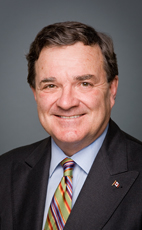No, Mr. Speaker. I have had discussions since March 19, the day of the budget, with the minister of finance of Nova Scotia, with the acting minister of finance of Nova Scotia subsequently, and with the premier, with respect to implementation, because Nova Scotia and Newfoundland and Labrador are in a unique situation in Canada because they have these accord agreements.
The other provinces and territories do not, so they are the only two jurisdictions that have a choice to make between continuing with the accord just as it was before March 19, right to the end of their entitlement under the accords, if they choose to do that, or electing to enter the new O'Brien formula.
That is an issue of some complexity. That requires some analysis. We have had a series of discussions concerning the implementation and the choices to be made.
We made an early decision, at the request of the province of Nova Scotia, and in fact during the first week after March 19, because the Nova Scotia budget was to be delivered on the Friday and this budget was earlier in the week, on March 19. The concern of the government of Nova Scotia was that it felt it was asked to make a sudden choice and it needed more time.
We said to go ahead and elect into the modified O'Brien formula, the new formula, which it did for this year, this 12 month period, and receive an extra $95 million for the people of Nova Scotia, and then take time to consider its choices. In fact, that is what the government has been doing and we have been doing in discussion with it.

